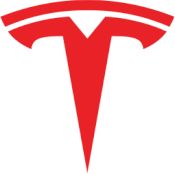We like to keep our readers abreast of IP developments around the globe, so in this article, we'll discuss recent trade mark infringement cases in China and Germany.
CHINA... TESLA V ZHONGYIN
The parties
This case involved the rather well-known car brand that is the brainchild of a rather well-known billionaire: Tesla and Elon Musk. The case also involved a company that may well be a household name in China, Zhongyin Food Co. Ltd.

Photo credit: Wikimedia
The facts
Zhongyin sells beer and soda. For reasons that one can only speculate about, the company sells these drinks under the brand name TESLA, and it has apparently been doing this since 2019. Zhongyin also has a T-shaped logo that it applies to its drinks. Looking at this logo, one can't help thinking that it is similar to the logo of a well-known electric car brand. As for the promotional material, Zhongyin uses terms like 'pioneer brand of pre-mixed drinks in America' and 'internationally top-notch brand', as well as images of Tesla cars.
Legal proceedings
Tesla sued Zhongyin in a Chinese court for trade mark infringement. The issue was whether there was a likelihood of confusion - could consumers link TESLA beer with the products of Tesla, the electric car company?
The court
The court held that consumers might well link TESLA beer and soda products with TESLA cars. It made the point that in trade mark infringement proceedings, the trade marks do not need to be identical because similar trade marks can, and often do, cause confusion. The court further held that the TESLA beer brand could dilute the distinctiveness of the TESLA car brand. The court was clearly unimpressed with the conduct of the Chinese company and spoke in its judgment of a "subjective malice".
The result
A perfectly reasonable result that might go some way to dispelling the long out-of-date notion that Western companies are unlikely to get justice in Chinese courts.
CHINA... TESLA V SINO DRINKS
Tesla found itself in a further trade mark dispute in China. Tesla had for some time been advertising the fact that it would be launching a beer in China called GIGA. Seemingly in response to this, a company called Sino Drinks Food Company launched a beer called TESILA, which featured, once again, a T-shaped logo that was remarkably similar to the T logo of Tesla. Tesla once again went the legal route, and was successful with Sino being found guilty of trade mark squatting. Sino was ordered to stop using the trade mark, stop competing unfairly, publicise the fact that it has no links to Tesla, and pay USD700 000 in damages. Another welcome decision.
GERMANY
There's been an interesting court decision in Germany regarding the sale of CALVIN KLEIN and JOOP perfumes by the retail chain Aldi .
Background
Coty is the licensee of the EU trade mark registrations for the trade marks CALVIN KLEIN and JOOP! Coty was irked by the fact that Aldi was selling CALVIN KLEIN and JOOP! perfumes. Coty's issue wasn't that Aldi was selling knock-offs, because the goods that Aldi was selling were in fact genuine goods.
Coty's complaint was that CALVIN KLEIN and JOOP! perfumes deserved more respect and should be sold in smarter surrounds, not in Aldi stores. Not in drawers and glass containers that contain other items such as multimedia goods nor in "bargain bins." In short, Coty was concerned that the presentation and advertising of the CALVIN KLEIN and JOOP! perfumes by Aldi would tarnish the trade marks' reputation.
A court in Dusseldorf agreed with the objection. It referred to the earlier EU case of Parfums Christian Dior v Evora (C-337/95), where the court held that damage to reputation can be a legitimate reason to oppose the further sale and advertising of goods. In that case, the court also said that when it comes to luxury goods, a reseller must take steps to ensure that its advertising does not adversely affect the value of the trade mark. The Dusseldorf court also referred to the luxury goods case of Copad (C-59/08), where the Court of Justice of the European Union said that the owner of a very exclusive luxury brand might conceivably object to any sales of its goods in discount stores.
The Dusseldorf court felt that the two brands enjoyed a certain luxury aura. In contrast, the presentation in Aldi 'lacked exclusivity'. This was detrimental to the reputation of the trade marks. Coty's interest in preserving the luxury image of its perfumes outweighed Aldi's interest in selling the perfumes. The interest of Aldi in 'improving its discounter image by selling prestigious brands must take a backseat against Coty's interest to maintain the image of its trade mark'.
The content of this article is intended to provide a general guide to the subject matter. Specialist advice should be sought about your specific circumstances.

